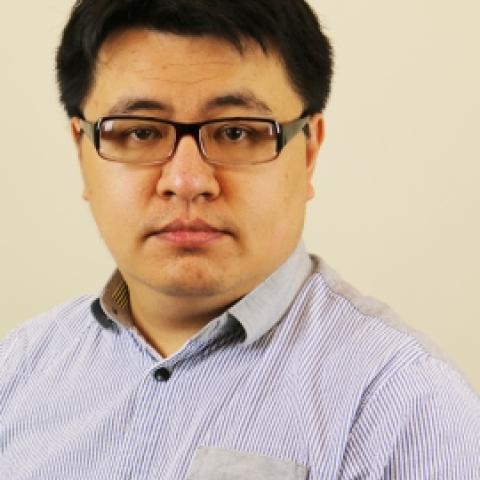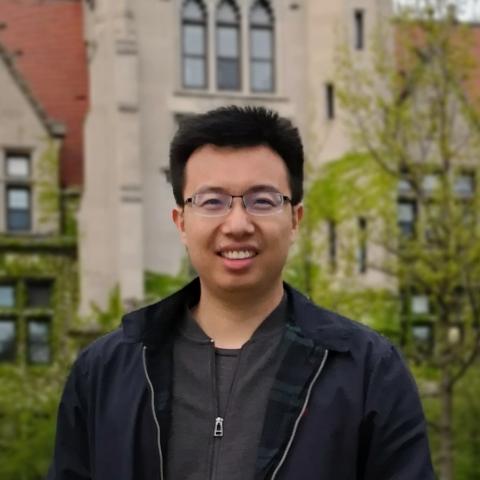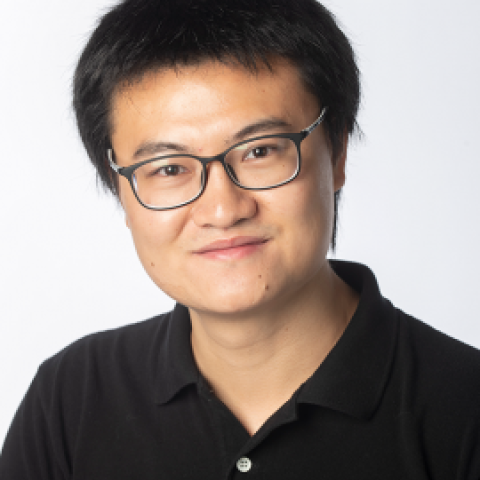Quanita Wilkerson



Dr. Chirico is a lifelong yellow jacket bringing over 20 years of sustainability experience as the inaugural Associate Vice President (AVP) of Sustainability at Georgia Tech. In this role, she oversees the Office of Sustainability and Utilities Management. She led the development and publication of the Institute’s first Climate Action Plan and co-led Georgia Tech’s Institute Sustainability Plan, Sustainability Next. In addition, she works across the Institute on emissions reductions, clean energy, water management, circular economy, sustainable technology and strategy. She holds a PhD in public policy from Georgia Tech, a master’s in public health (MPH) with a major in environmental health, and a Bachelor of Science in management from Georgia Tech. She is LEED GA accredited and holds certifications in the Carbon Disclosure Project (CDP), Global Reporting Initiative (GRI), WaterSense, Climate Action Planning, and Home Energy Survey Professional (HESP).

Dr. Rahnev received his Ph.D. in Psychology from Columbia University in 2012. After completing a 3-year post-doctoral fellowship at UC Berkeley, he joined Georgia Tech in 2015 where he is currently Blanchard Early Career professor. His research focuses on perceptual decision making – the process of internally representing the available sensory information and making decisions on it. Dr. Rahnev uses a wide variety of methods such as functional magnetic resonance imaging (fMRI), transcranial magnetic stimulation (TMS), psychophysics, computational modeling, and deep neural networks (DNNs). Dr. Rahnev’s work appears in high-impact journals such as Behavioral and Brain Sciences, PNAS, Nature Communications, and Nature Human Behavior. He has received over $3.5M in funding, including PI grants from NIH, NSF, and the Office of Naval Research.
Big Data
Human Augmentation


Tuo Zhao is an assistant professor in the H. Milton Stewart School of Industrial and Systems Engineering and the school of Computational Science and Engineering (By Courtesy) at Georgia Tech.
His research focuses on developing principled methodologies, nonconvex optimization algorithms and practical theories for machine learning (especially deep learning). He is also interested in natural language processing and actively contributing to open source software development for scientific computing.
Tuo Zhao received his Ph.D. degree in Computer Science at Johns Hopkins University in 2016. He was a visiting scholar in the Department of Biostatistics at Johns Hopkins Bloomberg School of Public Health from 2010 to 2012, and the Department of Operations Research and Financial Engineering at Princeton University from 2014 to 2016.
He was the core member of the JHU team winning the INDI ADHD 200 global competition on fMRI imaging-based diagnosis classification in 2011. He received the Google summer of code awards from 2011 to 2014. He received the Siebel scholarship in 2014, the Baidu Fellowship in 2015-2016 and Google Faculty Research Award in 2020. He was the co-recipient of the 2016 ASA Best Student Paper Award on Statistical Computing and the 2016 INFORMS SAS Best Paper Award on Data Mining.

Chao Zhang is an Assistant Professor at the School of Computational Science and Engineering, Georgia Institute of Technology. His research area is data mining, machine learning, and natural language processing. His research aims to enable machines to understand text data in more label-efficient and robust way in open-world settings. Specific research topics include weakly-supervised learning, out-of-distribution generalization, interpretable machine learning, and knowledge extraction and reasoning. He is a recipient of Google Faculty Research Award, Amazon AWA Machine Learning Research Award, ACM SIGKDD Dissertation Runner-up Award, IMWUT distinguished paper award, and ECML/PKDD Best Student Paper Runner-up Award. Before joining Georgia Tech, he obtained his Ph.D. degree in Computer Science from University of Illinois at Urbana-Champaign in 2018.
Data Mining

While teaching textiles and fashion design studio classes at Savannah College of Art & Design, Zeagler realized his true passion lies in bridging the gap between the disciplines of Wearable design and Human-Centered Computing. A diverse background in fashion, industrial design, and textiles drive his research on electronic textiles and on-body interfaces with the Contextual Computing Group of the GVU center of Georgia Tech. As a Principal Research Scientist for the Georgia Tech Interactive Media Technology Center and Instructor for the Georgia Tech School of Industrial Design he teaches courses on Wearable Product Design and an ID section of Mobile and Ubiquitous Computing (MUC). Zeagler enjoys working with corporations such as HP/Palm and Google to bring real-world experience into the classroom. He recently acquired a NASA Georgia Space Consortium grant to fund MUC student projects on wearable computing for space—a wonderful opportunity for undergraduate students. He is also a member of the NASA Wearable Technology Cluster a group of scientists and academics working together to give advice to those in NASA working on wearable computing or electronic textile projects. A deep understanding of the garment production process fosters innovation in his research. Zeagler’s company Pecan Pie Couture hand-dyed, embroidered, and screen-printed textiles and garments. Building upon that skillset, his recent research led to the creation of the Electronic Textile Interface Swatch Book (ESwatchBook) in collaboration with Thad Starner. The ESwatchBook is designed to help facilitate discussions between the skill and craft-based design disciplines (.i.e. fashion) and more technical disciplines (.i.e. computer science). To put the ESwatchBook’s capabilities to the test, he developed a series of workshops at multiple colleges with the purpose of bringing together designers with engineers/technology specialists. The workshops were funded by a National Endowment for the Arts grant, which he co-authored. Zeagler’s most recent endeavor FIDO: Facilitating Interactions for Dogs with Occupations is an exploration into using wearable electronics to enhance interactions between service dogs and their handler/owners.


I am currently a Senior Research Scientist at Georgia Tech working in the School of Computer Science in the College of Computing since 2015. Previously, I have worked as as a research scientist in the School of Computational Science and Engineering (CSE) from 2013 to 2015. This work focused on advanced user support and benchmarking for the Keeneland project and investigating architecture-related research topics for Dr. Jeff Vetter’s Future Technologies Group at Oak Ridge National Lab.
With a background in computer architecture, my main research interests are focused on the intersection of high-performance computing and novel accelerators including GPUs, Xeon Phi, FPGAs, and Arm SVE processors. I am currently working on a collaborative research program for near-memory computing with High Bandwidth Memory (HBM) for processors and GPUs, SuperSTARLU, which is funded by the NSF. I am co-director of Georgia Tech’s Center for High Performance Computing, and I am also the director of a novel architecture testbed, the CRNCH Rogues Gallery, that aims to simplify and democratize access to novel post-Moore accelerators in the neuromorphic, reversible, and novel networking spaces.
I defended my PhD in August 2013 in the area of computer architecture working under Dr. Sudhakar Yalamanchili. More information on this networks- and memory-related research can be found under the publications tab.

Dr. Shihao Yang is an assistant professor in the School of Industrial & Systems Engineering at Georgia Tech. Prior to joining Georgia Tech, he was a post-doc in Biomedical Informatics at Harvard Medical School after finishing his PhD in statistics from Harvard University. Dr. Yang’s research focuses on data science for healthcare and physics, with special interest in electronic health records causal inference and dynamic system inverse problems.
Data Mining